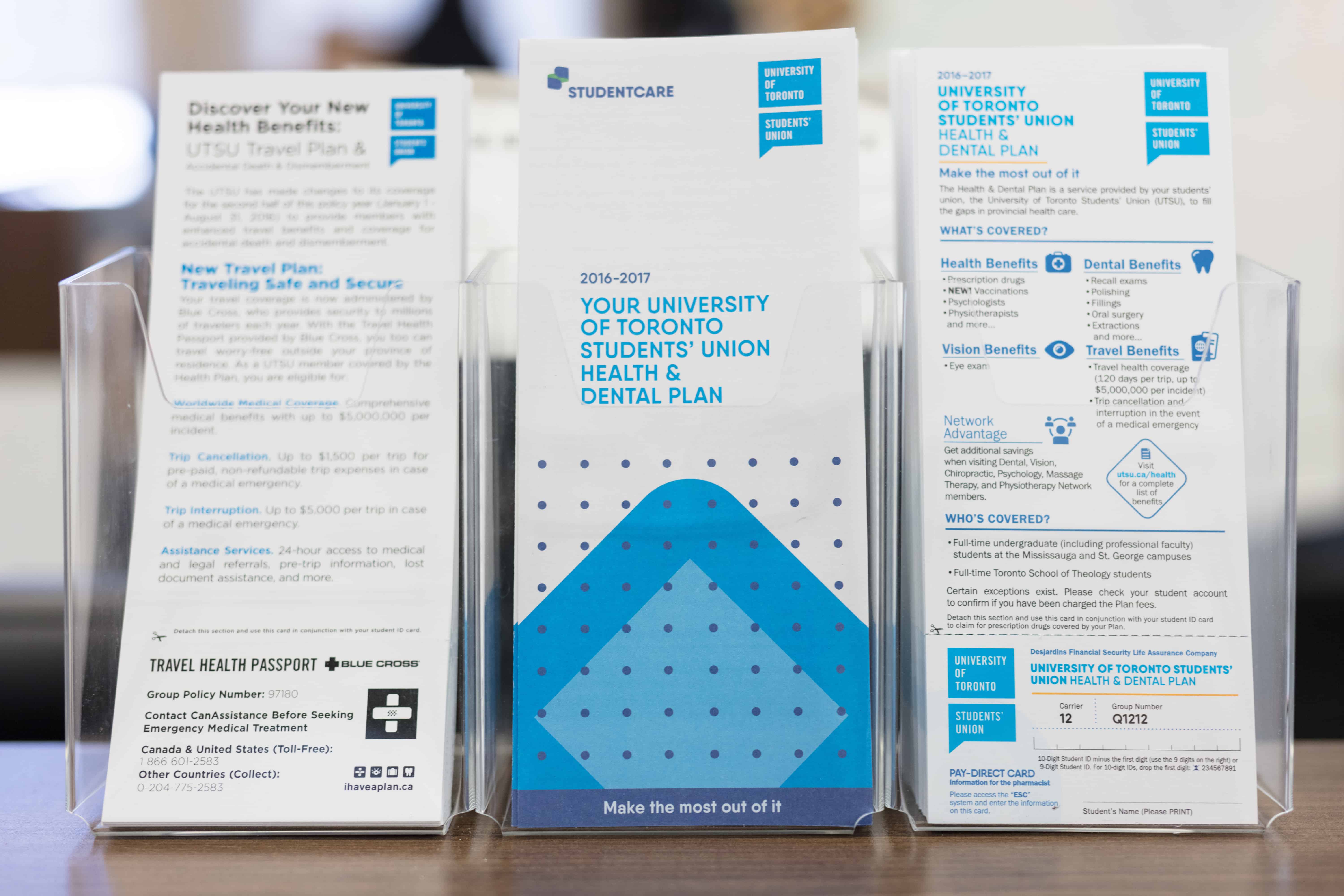The University of Toronto Students’ Union (UTSU) Health and Dental Plan provides students with coverage that would otherwise be unaffordable for many students. In the upcoming UTSU elections, students will be choosing the leaders who will have the ability to make changes to the Health and Dental Plan.
Currently, full-time undergraduate students at UTSG, UTM and full-time Toronto School of Theology students are automatically enrolled in the UTSU Health and Dental Plan. Students have the option of opting out at the beginning of each semester and are eligible to receive a $307.80 refund.
Members who remain enroled in the plan are entitled to up to $800 for dental services, $75 for visual health services, $5 million for travel insurance, and more than $10,000 for extended health services.
While it all sounds great, part of the extended health services also covers homeopath visits, covering up to $600 per year for the controversial medicine.
The practice is deeply rooted in nineteenth-century European theories. Since then, the principles of homeopathy have remained virtually unchanged. Founded on the idea that ‘like cures like,’ homeopaths believe diluting a substance that would normally cause an illness in a healthy person can cure the disease in an ill person. The more diluted the substance, the more potent the treatment becomes.
In a 2002 review published by the British Journal of Clinical Pharmacology, homeopathy was shown to have no substantial evidence to support its effectiveness. The medical community generally accepts homeopathy as a pseudoscience that provides no advantage over conventional medicine.
As a result, students and professors have raised some concerns about its coverage in the Health and Dental Plan.
Dr. Marsela Braunstein, a lecturer at the Department of Immunology at the University of Toronto, shares her thoughts on homeopathy’s coverage in the plan: “Strictly speaking, from a scientific perspective, it’s difficult to justify it because treatment has to be [supported by] evidence based decisions,” she says.
In recent years, the Government of Ontario has moved towards the regulation of homeopathy. For many scientists like Braunstein this is seen as potentially lending an appearance of legitimacy to pseudoscience.
“If [homeopathy] starts to compete with [conventional medicine], and if it’s presented as an alternative, then I think it’s a scary place,” said Braunstein. Covering homeopathy in the Health Plan is a way of further legitimizing this practice.
Anti-science views are not new to the university. For many years now, other scientifically-questionable services have also been covered in the Health Plan, including naturopathy and chiropractic medicine.
Every year, students have the opportunity to voice their opinions about the Health Plan during the UTSU elections. Unfortunately, while slates attempt to garner as many votes as possible, few have prioritized the Health and Dental Plan.
The exception is Demand Better UofT. They have outlined their proposed adjustments for the Health and Dental Plan on their website. Changes include more extensive vision coverage, additional psychotherapy coverage, and an easier opt-out process.
Mathias Memmel, presidential candidate for the Demand Better slate, has also addressed the issue of homeopathy in a recent Ask Me Anything session on the U of T subreddit. “I don’t want the UTSU plan to cover non-scientific treatments. Homeopathy is a definite no,” he wrote.
In contrast, Jannie Chien, a fourth-year Sociology and Human Geography student, believes the current plan is more inclusive for those on campus. “I think [the plan] should cover [homeopathy] just because there will be people who don’t want to be treated by Western medicine, and in order to accommodate everyone, they should include it,” Chien says. “People are always changing and their beliefs are always changing… I think it’s great they cover such a wide variety of health needs.”
Louisa You, a first-year social sciences student, was not aware that homeopathy is covered in the Health Plan. When asked for her opinion, she responded, “Well, it depends on how many people are affected… If it’s a large enough percentage, I think we have a civil right to contribute to whoever needs it.” She was also surprised by the number of sessions that were covered. “I think any plan that covers 20 visits a year is excessive and unnecessary.”
While some students have a more inclusive viewpoint, others seem to side with the science. Daniel Davoudpour, a first-year Life Sciences student, stands by the evidence. “I don’t think we should spend money on something that doesn’t work… As far as I know, it’s a pseudoscience, and I think money should be spent on something with a better investment,” he said.
“If somebody can show me why it would be beneficial to have, then I’d be open-minded in accepting it,” Davoudpour added.
In today’s political climate, it is crucial to be equally critical and supportive of science. For some students, the current plan proves to be a beacon of inclusiveness and understanding. For others, the science is not there to support homeopathy. There is no simple solution, so we can only wait and see how the soon-to-be-elected UTSU addresses this issue.


